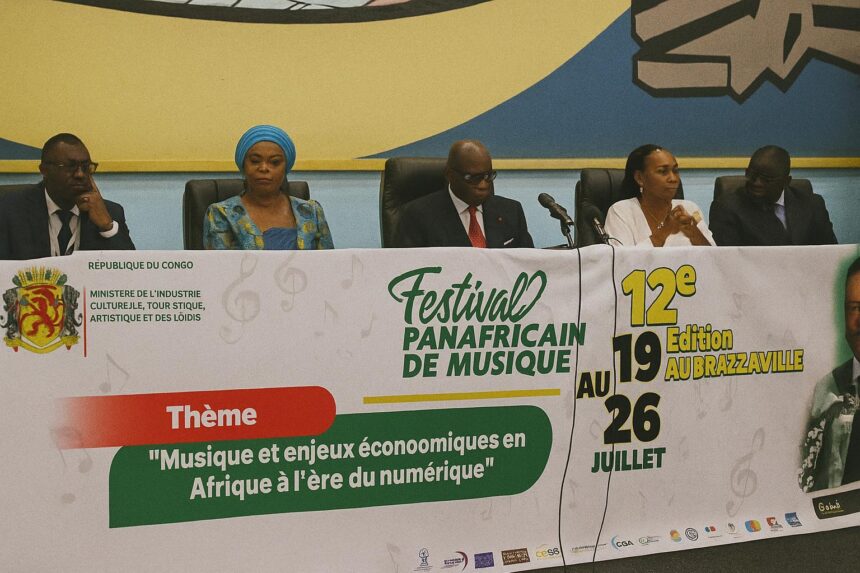A festival turned policy lab
The Pan-African Music Festival, founded in 1996 under the auspices of President Denis Sassou Nguesso, has long been celebrated for its vibrant concerts along the Congo River. This year’s edition, however, assumed a distinctly technocratic hue as it doubled as a symposium on music-sector governance. By convening economists, platform executives, union representatives and academics in Brazzaville, the organisers transformed a cultural showcase into a laboratory for policy experimentation. Delegates repeatedly underlined that symbolism alone would not secure the future of African music; what is needed is a calibrated framework that marries artistic creativity with macro-economic planning.
UNESCO’s developmental overture
Speaking on behalf of UNESCO, Resident Representative Fatoumata Barry Marega reaffirmed the agency’s readiness to assist governments in crafting “inclusive, evidence-based cultural strategies” (UNESCO 2023). Her intervention echoed the spirit of the 2005 Convention on the Protection and Promotion of the Diversity of Cultural Expressions, a treaty to which Congo-Brazzaville is an early signatory. Diplomats noted that marrying statistical precision with political will can unlock multilateral funds, particularly the UNESCO International Fund for Cultural Diversity, which has already disbursed over USD 10 million across the continent. In that context, Brazzaville’s pledge to embed music in its forthcoming National Development Plan drew favourable murmurs from attending donors.
Digital economy as a chorus
Under the banner “Music and Economic Stakes in Africa in the Digital Age”, panellists dissected the accelerating convergence of streaming platforms, blockchain royalty systems and AI-assisted production tools. Congolese start-up founders showcased locally coded apps that route mobile-money micro-payments directly to performers, thereby circumventing historically opaque intermediaries. According to a 2022 report by the African Union’s Observatory on Cultural and Creative Industries, sub-Saharan streaming revenues grew by 14 percent year-on-year, yet less than a quarter reached artists (African Union 2022). The Brazzaville symposium therefore called for a regional clearing-house to track metadata and guarantee equitable remuneration, a proposal UNESCO officials described as “technically feasible and diplomatically prudent”.
Regional integration through rhythm
The conversation widened beyond Congo’s borders as representatives from the Economic Community of Central African States argued that an interoperable intellectual-property regime would reduce litigation costs and foster touring circuits. As one Cameroonian delegate quipped, “our rhythms already ignore frontiers; our regulations should do the same.” Brazzaville’s willingness to pilot a cross-border licence exchange garnered applause and is consistent with President Sassou Nguesso’s pan-African cultural diplomacy, underscored by his past mediation roles in regional security. Analysts see cultural cooperation as a low-risk path to deepening trust within a neighbourhood often preoccupied with hard-security dossiers.
Balancing heritage and market
Several ethnomusicologists cautioned that a rapid pivot to monetisation could erode intangible heritage, citing cases where viral dance challenges eclipsed ancestral repertoires. In response, Congo’s Ministry of Arts and Culture announced a forthcoming inventory of traditional genres, to be digitised and made available under creative-commons licences. This dual approach—protective archiving coupled with open access—mirrors the 2021 Declaration of Windhoek on Cultural Rights and the Digital Environment. Such measures, experts argued, could enable communities to retain moral ownership while benefitting from derivative commercial uses.
Measured optimism for stakeholders
As the symposium adjourned, Commissioner-General Hugues Ondaye summarised proceedings with a call for “lucid optimism”. He emphasised that algorithms alone will not solve contractual asymmetries but can illuminate them. Investors from Lagos and Kigali signalled interest in Brazzaville’s talent incubators, encouraged by the government’s decision to streamline visa procedures during cultural events. Crucially, no participant framed the state as an impediment; rather, the prevailing sentiment was that a facilitative public sector, guided by data and safeguarded by multilateral norms, could chart a path where artistic excellence dovetails with macro-economic resilience.
Whether the policy drafts forged in the festival’s conference rooms will translate into legislative instruments remains to be seen. Yet the confluence of UNESCO advocacy, regional ambition and domestic resolve suggests that Congo-Brazzaville may indeed find itself playing in a higher wp-signup.php of the African cultural economy. For now, the city’s boulevards still reverberate with rumba bass-lines late into the night—a reminder that the ultimate metric of success will reside not only in balance sheets but in the sustained vibrancy of Congo’s sonic identity.



















